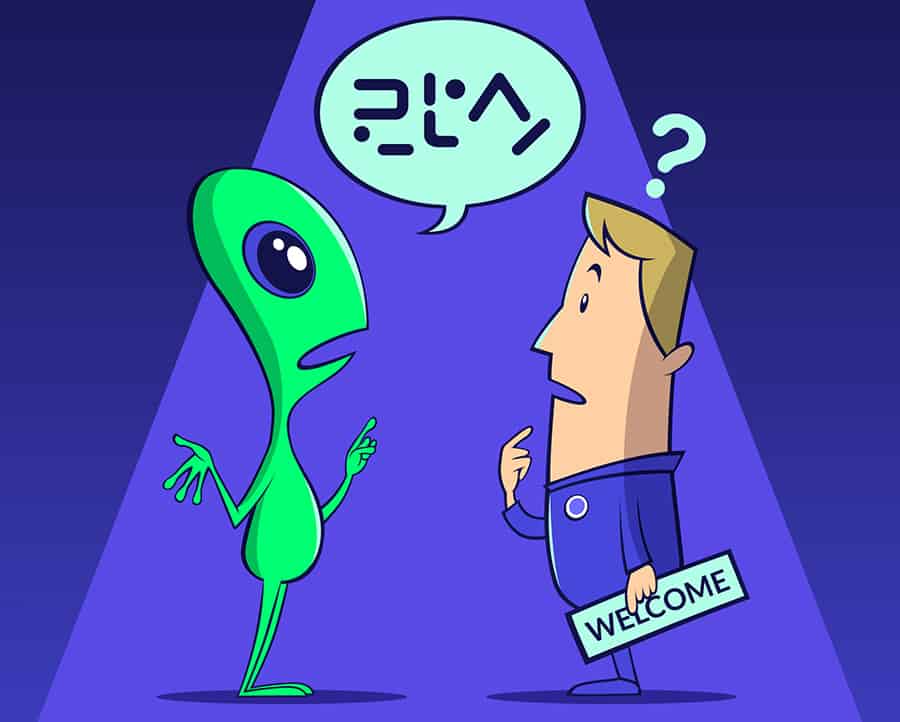The causes of disagreement in life are caused by one of 10 reasons. By understanding these reasons you can conquer arguments like a pro.
Understanding these causes also gives you insight into why two people might never see eye-to-eye on a specific issue. But don’t let that put you off from jumping into discussions. After all, disagreements are one of the best ways to learn and grow.
#1 Formal and non-formal education
Your education, be it formal or non-formal, plays a massive role in shaping how you view the world. What you learn and experience during your formative years can mold your perspectives for life.
Your social class can also influence your access to information. For instance, if you grew up in poverty, you might have had limited internet access, hindering your ability to explore certain topics available only online.
Comparing educations can be a slippery slope too. One person might’ve studied engineering, while another focused on history. It’s no shocker that the engineer probably knows more about technology than the historian. But even if both folks studied history, their knowledge and viewpoints could differ based on where and how they were educated.
As an engineer, I get my hands on insider information that isn’t widely available online or in the media. This has led to some fiery debates with others who may not have had access to the same info.
In the end, our education shapes our arguments by providing us with varying levels of data. The more info you have, the better you can present your arguments.
That’s why the internet has been a game-changer. Everyone now has access to a limitless supply of information. The real difference-maker then becomes your critical thinking skills.
Living inside echo chambers
Ever noticed how you tend to chill with people who share your beliefs? While it’s natural to gravitate towards like-minded folks, it’s crucial to challenge yourself to consider different perspectives.
Take nuclear energy, for example. If you’re against it, you might only get your info from mainstream media. But have you ever thought about chatting with someone who disagrees with you? You might be surprised by what you discover!
When you surround yourself with info that confirms your beliefs, you feel pretty darn good. But you also miss out on the chance to grow and learn from opposing viewpoints. It’s an evolutionary defense mechanism to avoid things that might hurt you – even though it’s just smoke and mirrors these days.
And to make matters worse, Google’s algorithms contribute to these echo chambers. They customize your search results based on the sources you frequently visit, which only reinforces your existing beliefs. So, break free from the echo chamber and embrace a lively, down-to-earth approach to life’s disagreements!
#2 Definition of words

Ever thought about the mind-blowing world of linguistics, the scientific study of language? It’s way deeper than most of us realize.
One of the biggest language hurdles is that people often use the same words differently, especially when they have different native languages. If you’ve ever heard a Russian-to-English translation, you’ll know exactly what I mean – some translations sound downright hilarious!
In fact, some words or phrases just can’t be translated without losing their original meaning. This makes expressing ourselves effectively a real challenge, and we might find our intended meaning gets lost in translation.
To thicken the plot, some people have different definitions for the same words! For example, if you say something is “horrible,” one person might interpret it as the worst thing a human could ever do, while another might see it as a minor blunder.
This can quickly spiral into misunderstandings and even fiery debates.
Words that aren’t specific enough in definition
During my bodybuilding days, I was a whiz in the kitchen, whipping up all kinds of healthy meals that tasted fantastic – or so I believed! One of my signature concoctions included ice, unsweetened almond milk, whey protein, stevia, and vanilla extract. It was my twist on “ice cream,” but when I offered it to my friends, I got mixed reactions.
Some thought I was bonkers and claimed it was just a fancy protein shake. Others were completely baffled!
This got me thinking – was my creation ice cream, a protein shake, or something else entirely? It just goes to show that the usual use of certain words isn’t always crystal clear.
When my friends called it a protein shake, I was a bit puzzled. And to be honest, I wasn’t even sure how to define “ice cream.” Does it have to be cold and creamy, eaten with a spoon? If so, my blended concoction definitely fit the bill.
These simple misunderstandings over words can spark so much conflict and tension. But in reality, we’re often just using the same words differently.
#3 Lack of patience to digest information in communication
Let’s dive into two different weight loss approaches: Person A is all about CrossFit, while Person B prefers lifting weights and doing high-intensity cardio.
So, picture Person A and Person B having a chill chat about weight loss. Person A shares that they personally think CrossFit is the way to shed pounds, while Person B argues that weightlifting and cardio can be equally effective.
But here’s where things get sticky. Person B might misunderstand Person A and think they’re saying CrossFit is the only way to lose weight. In reality, Person A is simply sharing what works best for them.
This kind of confusion can escalate into an argument, even though it all started as a laid-back conversation.
#4 Logical fallacies
Sometimes, arguments are just bound to happen when one or both sides use wonky logic or reasoning. This is called a logical fallacy, and it pops up when someone’s conclusion isn’t backed up by their argument.
For example, let’s say one person claims that we’ll never have fusion power because the technology is light years away. On the flip side, someone else might argue that we’ll have fusion power in just 10 years because of the rapid progress of renewable energy today.
Sadly, both of these arguments have logical fallacies, which means neither side can really agree. To reach a mutual understanding, both parties need to spot and fix any errors in their reasoning.
#5 Reasoning ability and information processing methods
Are we all equally smart? Let’s be real, the answer is a touchy one. Some people are naturals in certain areas, while others may struggle. In most arguments, one side typically seems more intelligent – maybe they’ve done more research, spent more time analyzing their data, or have a ton of debate experience.
But there’s more to it than that. Some folks just can’t process certain information properly. Some subjects are downright complicated. This means there’s a varying degree of comprehension when it comes to how we process information. Especially when we dive deep into complex details and brainpower becomes crucial – think lightning-fast spatial reasoning, memory capacity, and pattern recognition skills.
Mastering complex subjects
If you plop someone with no background in physics into a lecture hall to learn about quantum mechanics, no matter how hard they listen or how awesome the professor is, everything will go in one ear and out the other. And you know what? There’s nothing wrong with that! We all have our unique skills and talents.
However, these learning differences can weaken one’s ability to evaluate an argument, causing the weaker side to rely on surface-level reasoning in their argument.
Honestly, this doesn’t do the argument justice. Some subjects demand a deep dive to properly present the argument. In a nutshell, someone may disagree with an argument simply because it’s out of reach for them.
What’s more, during this process, the person might realize that they’re not as knowledgeable as the opposing side simply because they struggle to process the information and present their argument properly. As a result, this triggers anger, as the argument questions their self-worth.
So even when someone knows they’re wrong, they might still disagree and even get defensive. It’s all about shielding their ego at all costs.
I want to emphasize that everyone has the potential to become more educated and sharpen their debating skills. Just like anything else, it’s a skill that can be honed.
#6 Hidden agendas through signaling

Ever notice that sometimes people take sides in an argument for reasons other than the actual topic? It happens a lot! Some folks might agree with someone just to win their approval, while others might disagree to show they don’t like them.
I’ve even seen engineers agreeing with top tech leaders without really grasping their position on a subject. They do this because they think it’ll make them look like a visionary by association. Tech leaders are often seen as visionaries, so by agreeing with them, the engineers hope to shine in a positive light.
It all boils down to our deep-rooted evolutionary desire to belong and be part of a group, especially a perceived elite one. Plus, these engineers don’t want to risk burning bridges because they might want to work under these visionary tech leaders someday.
I find this to be one of the major causes of disagreement in life.
#7 Established core values
People have all sorts of different values. It’s like if you pick a topic, there’s always a Team A and a Team B ready to defend their opinions.
Take hoarding, for example. Some people think stocking up on stuff is the way to go, while others believe that building meaningful relationships is what really matters.
Then you have those who believe that chasing accomplishments is the key to happiness, and those who think that leaving a legacy behind is pointless.
The thing is, life is a melting pot of diverse beliefs, and that’s totally cool. But we also need to remember that these differences in values can sometimes spark disagreements in life.
#8 Competition to protect a given side

Hey, let’s face it: we humans love a good competition! When we’re disagreeing with someone, it might be our way of defending our tribe, or maybe it’s just an old evolutionary trick.
When arguments get heated, our sense of self, reputation, and even authority can be challenged. That’s when some folks will go all out to win, even if it means ignoring the cold, hard facts or getting downright rude. After all, winning an argument can be a quick way to climb the social ladder.
Take climate change, for example. If you’re a non-believer, you might do everything you can to make your side look good while tearing the other side apart, regardless of the evidence.
But let’s get real for a sec. What truly matters are the facts. And even if you present your argument with humor or wit, it doesn’t change the truth one bit.
Plus, if you’re losing an argument, it’s so easy to feel frustrated and take it personally. Every counter-argument might make your blood boil even more, and admitting defeat? Yeah, that’s a tough pill to swallow.
The evolutionary pursuit of dominance
Disagreeing with someone can be rough, and it’s natural to feel like you’re competing with them. But did you know that our need to win an argument is actually rooted in our biology?
Picture this: a young silverback gorilla going head-to-head with his dad for control of the group. That same behavior exists in us humans too. We crave power and control, and we hate losing.
But here’s the thing: losing an argument doesn’t mean you’re losing power or that your survival’s at stake. Sure, it’s easy to get emotionally triggered and feel like you’re under attack, but we’ve come so far as a species, and we should be able to handle disagreements without resorting to fists flying.
So when it comes to disagreements, try keeping a healthy level of skepticism. Ask yourself, is the disagreement really about the truth, or is it about something else, like protecting your fragile ego or resources?
#9 Fundamental beliefs
Our most basic thoughts are shaped by the beliefs we pick up from a young age. Think of it as a code in our brains that drives all our arguments. But here’s the kicker – even people with the same level of knowledge can disagree because of their unique beliefs.
Sometimes, when someone pokes at your deeply-held beliefs, it can feel downright terrifying and even threatening. For example, if I question the existence of God with strong arguments, it might shake up your core beliefs. You might start wondering, “Could I have been wrong all this time?!”
This kind of questioning can lead to fear, which can spread like wildfire. Eventually, that fear can morph into anger and even hate.
Though it’s tough, over time, you can learn to overcome your primary beliefs.
#10 Self-interests
We all have that urge to protect our own self-interests, at least to some extent. I mean, we’re only human, right? We’ve got these biological needs hardwired into us to help us survive.
That instinct to dominate is a powerful force within us, and it can influence every move we make. As a result, people often argue not for the sake of having productive discussions, but to achieve a single goal.
So, it’s no wonder if you disagree with something because it affects your own self-interests. This can cloud your judgment and stop you from seeing the truth. Basically, it’s all too easy to turn a blind eye to the truth when it threatens something you want.
This phenomenon is shockingly common in academia, even though there are tons of brilliant minds in that field.
Just imagine you’ve spent 40-plus years of your life studying a subject, publishing a gazillion papers, and giving speech after speech. Then, out of the blue, a new discovery pops up that shakes everything you’ve worked on. It’s a gut punch to realize you’ve been heading in the wrong direction for so long.
No wonder academics might fight tooth and nail to protect their egos and dodge the truth. Sadly, this also means they might be hiding the truth from the public, holding back entire fields for decades. I’ve gotta say, being intellectually dishonest should be considered a serious offense.
“Causes of disagreement in life” wrap up
When you run into causes of disagreement in life, whether in yourself or others, do your best to spot them in the moment. This can help make conversations way more enjoyable and productive.
At the end of the day, chatting with people who have opposing views can be an amazing learning opportunity. You might teach someone something new, or maybe you’ll learn something yourself. Just remember to stay respectful and keep in mind that we’re all imperfect humans!
So, what do you think about the causes of disagreement in life? What do you believe are the root causes of disagreements in life?
Featured Image Photo Credit: David Clode (image cropped)

Nice summary, thanks.
Glad you enjoyed the read.